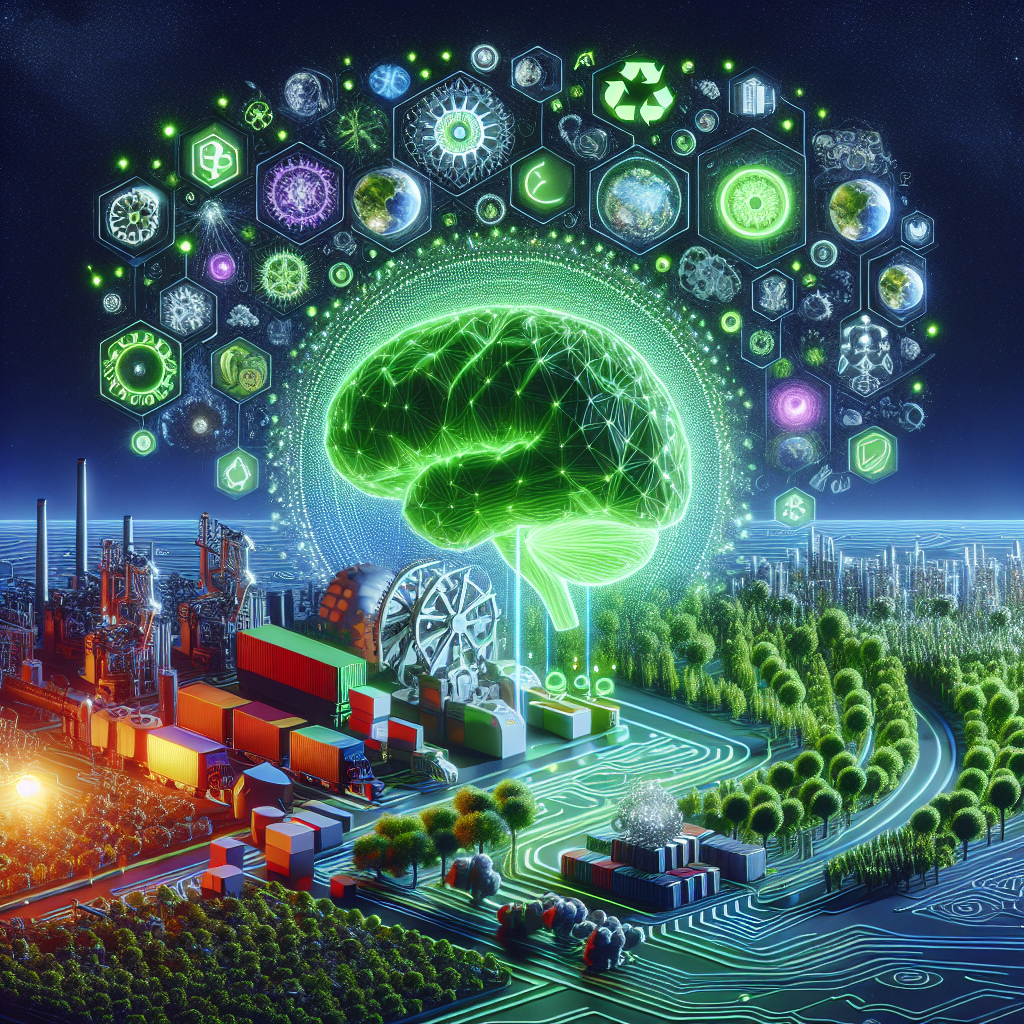In recent years, there has been a growing emphasis on sustainability in supply chain management. Many companies are now looking for ways to reduce their environmental impact, improve social responsibility, and enhance overall sustainability in their supply chains. One of the key technologies that is helping companies achieve these goals is artificial intelligence (AI).
AI has the potential to revolutionize supply chain management by making processes more efficient, reducing waste, and increasing transparency. In this article, we will explore how AI is being used to enhance sustainable supply chains and the benefits it can bring to businesses.
Benefits of AI in Sustainable Supply Chains
There are several key benefits of using AI in sustainable supply chains, including:
1. Predictive Analytics: AI can use historical data and real-time information to predict demand, optimize inventory levels, and reduce waste. By accurately forecasting demand, companies can avoid overproduction, minimize excess inventory, and reduce the overall carbon footprint of their supply chain.
2. Process Automation: AI can automate routine tasks such as order processing, inventory management, and logistics planning. By streamlining these processes, companies can reduce human error, increase efficiency, and lower costs. This also helps to reduce the environmental impact of supply chain operations.
3. Supply Chain Optimization: AI can analyze vast amounts of data to identify inefficiencies in the supply chain and recommend improvements. By optimizing transportation routes, warehouse layouts, and production schedules, companies can reduce energy consumption, emissions, and waste.
4. Transparency and Traceability: AI can provide real-time visibility into the entire supply chain, allowing companies to track products from raw materials to the end customer. This transparency helps to ensure ethical sourcing, fair labor practices, and compliance with environmental regulations.
5. Risk Management: AI can identify potential risks in the supply chain, such as natural disasters, geopolitical instability, or supplier disruptions. By proactively managing these risks, companies can reduce the likelihood of disruptions and ensure business continuity.
Case Studies
Several companies have already started using AI to enhance sustainability in their supply chains. For example, Walmart is using AI to optimize its transportation routes, reduce fuel consumption, and lower emissions. By analyzing data from sensors on its trucks, Walmart has been able to improve delivery efficiency and reduce its carbon footprint.
Another example is Nestle, which is using AI to improve traceability in its supply chain. By implementing blockchain technology and AI algorithms, Nestle can track the journey of its products from farm to table, ensuring that they are sourced ethically and sustainably.
FAQs
Q: How can AI help reduce waste in the supply chain?
A: AI can use predictive analytics to optimize inventory levels, reduce overproduction, and minimize waste. By accurately forecasting demand and streamlining production processes, companies can avoid excess inventory and reduce the environmental impact of their supply chain.
Q: Is AI only beneficial for large companies with complex supply chains?
A: No, AI can benefit companies of all sizes and industries. Even small businesses can use AI to automate routine tasks, improve efficiency, and enhance sustainability in their supply chain.
Q: How can companies ensure ethical sourcing and fair labor practices in their supply chain?
A: AI can provide real-time visibility into the entire supply chain, allowing companies to track products from raw materials to the end customer. By monitoring suppliers, conducting audits, and implementing traceability systems, companies can ensure ethical sourcing and fair labor practices.
Q: What are the potential challenges of implementing AI in the supply chain?
A: Some of the challenges of implementing AI in the supply chain include data quality issues, integration with existing systems, and resistance to change from employees. Companies need to invest in training, data management, and change management to successfully implement AI in their supply chain.
In conclusion, AI has the potential to transform sustainable supply chains by improving efficiency, reducing waste, and enhancing transparency. Companies that embrace AI technology will not only benefit from cost savings and operational improvements but also contribute to a more sustainable future for the planet. By leveraging the power of AI, businesses can achieve their sustainability goals and create a more ethical and responsible supply chain.

